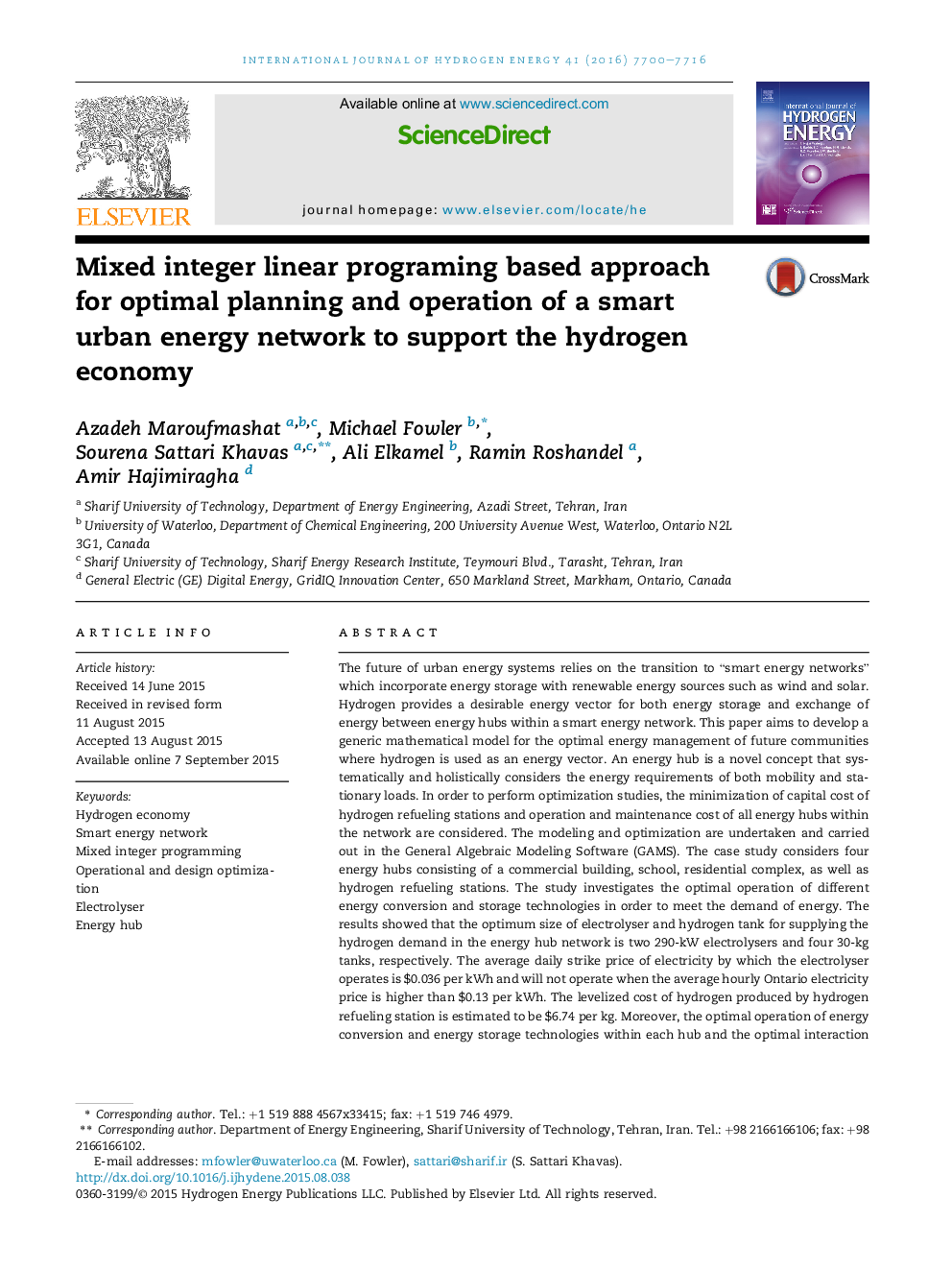| Article ID | Journal | Published Year | Pages | File Type |
|---|---|---|---|---|
| 1277266 | International Journal of Hydrogen Energy | 2016 | 17 Pages |
•MILP based model of energy hub network developed.•The benefit of a distributed hydrogen production is presented.•A case study comprising of four energy hubs are considered.•The greenhouse emissions and urban pollution offsets are investigated.•Optimum results are compared with four scenarios to show its performance.
The future of urban energy systems relies on the transition to “smart energy networks” which incorporate energy storage with renewable energy sources such as wind and solar. Hydrogen provides a desirable energy vector for both energy storage and exchange of energy between energy hubs within a smart energy network. This paper aims to develop a generic mathematical model for the optimal energy management of future communities where hydrogen is used as an energy vector. An energy hub is a novel concept that systematically and holistically considers the energy requirements of both mobility and stationary loads. In order to perform optimization studies, the minimization of capital cost of hydrogen refueling stations and operation and maintenance cost of all energy hubs within the network are considered. The modeling and optimization are undertaken and carried out in the General Algebraic Modeling Software (GAMS). The case study considers four energy hubs consisting of a commercial building, school, residential complex, as well as hydrogen refueling stations. The study investigates the optimal operation of different energy conversion and storage technologies in order to meet the demand of energy. The results showed that the optimum size of electrolyser and hydrogen tank for supplying the hydrogen demand in the energy hub network is two 290-kW electrolysers and four 30-kg tanks, respectively. The average daily strike price of electricity by which the electrolyser operates is $0.036 per kWh and will not operate when the average hourly Ontario electricity price is higher than $0.13 per kWh. The levelized cost of hydrogen produced by hydrogen refueling station is estimated to be $6.74 per kg. Moreover, the optimal operation of energy conversion and energy storage technologies within each hub and the optimal interaction between energy hubs with in the network are also investigated. In addition, it is shown that distributed hydrogen generation is more preferable than H2 delivery in environmental and economic comparison.
Graphical abstractFigure optionsDownload full-size imageDownload as PowerPoint slide
